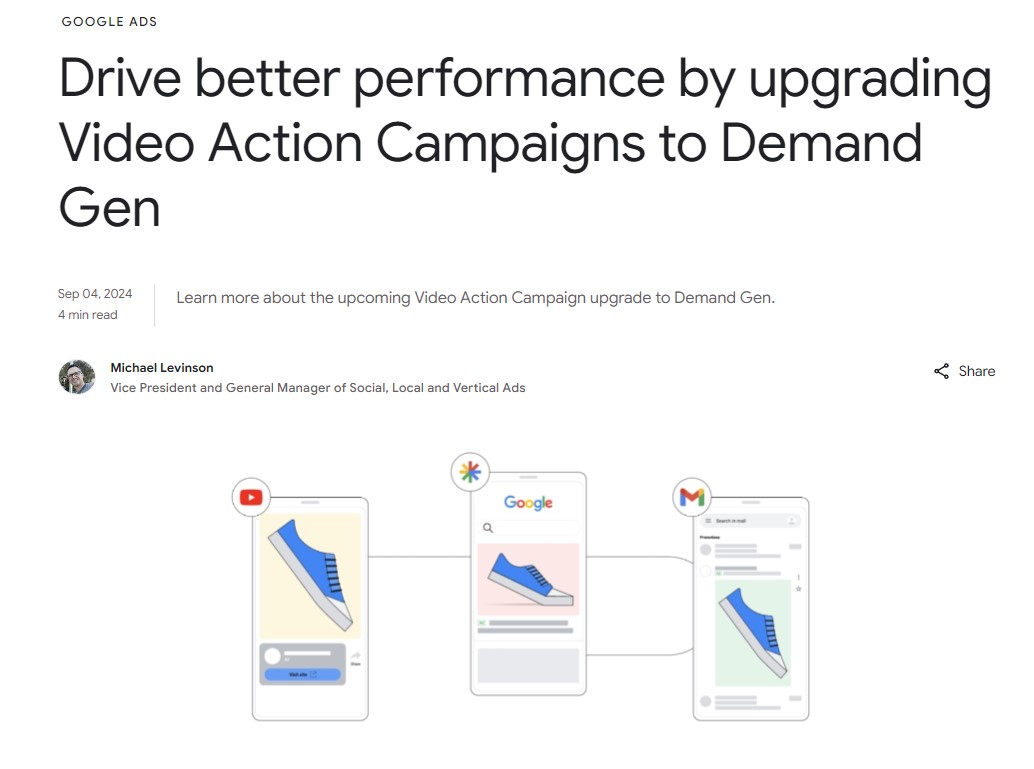
AI Revolution: Google Ads 2025 Strategies
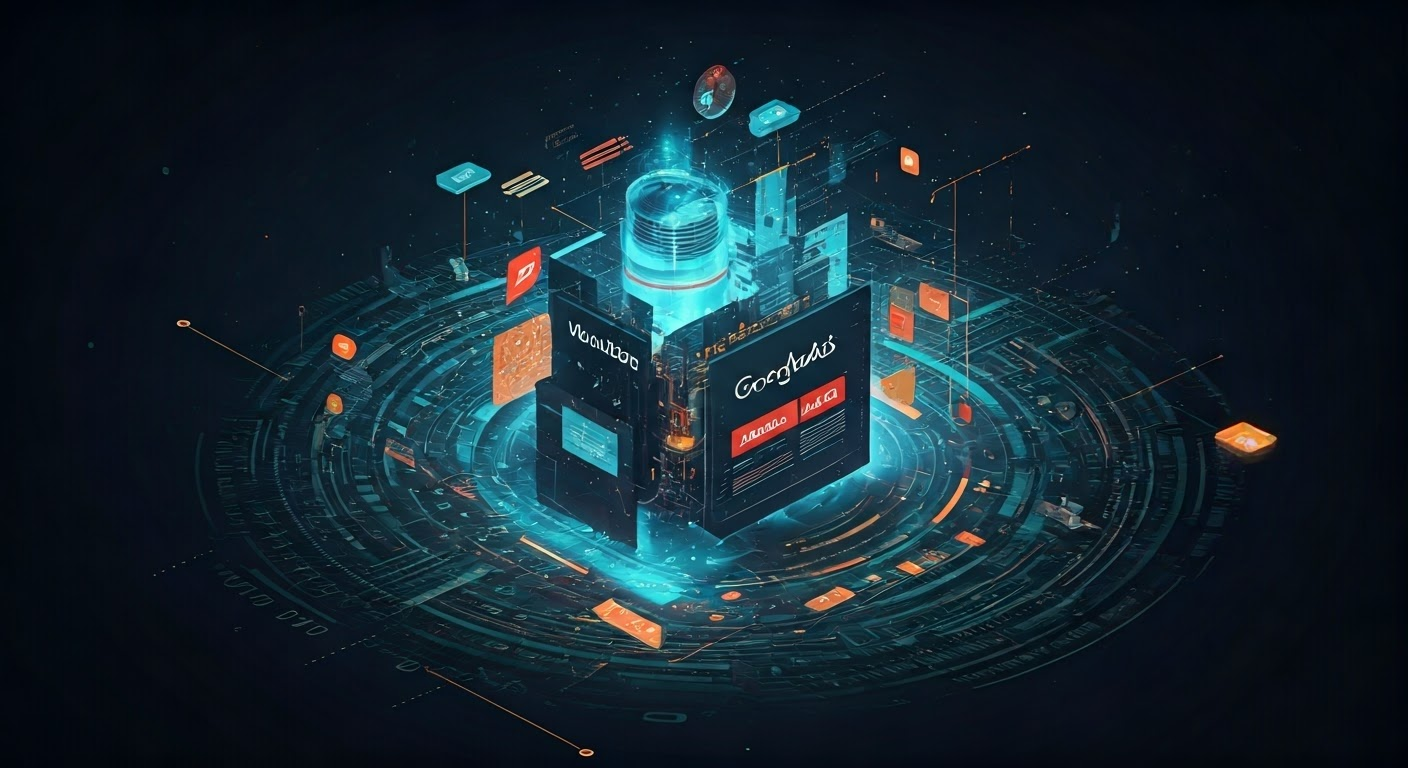
Key Highlights
- By 2025, AI will be indispensable to Google Ads, driving automation, personalization, and campaign optimization.
- AI-powered tools like Performance Max and Smart Bidding will redefine campaign management, enabling marketers to achieve better results with less manual effort.
- First-party data will be crucial for targeting as privacy regulations become stricter, requiring businesses to adapt their strategies.
- Expect to see more immersive and interactive ad formats, such as AR ads and Discovery Ads, captivating users and enhancing engagement.
- The rise of voice search and hyperlocal targeting requires advertisers to optimize for local searches and voice-activated queries.
Introduction
The digital marketing landscape is constantly shifting, and Google Ads, a cornerstone of online advertising, is undergoing a revolution fueled by AI in various perspectives, including Search Engine Land content. As we look toward 2025, it's clear that AI will no longer be a supplementary feature but a driving force behind successful Google Ads campaigns. This means marketers need to understand and leverage these advancements to stay ahead of the curve.
The Evolution of Google Ads: Embracing Artificial Intelligence
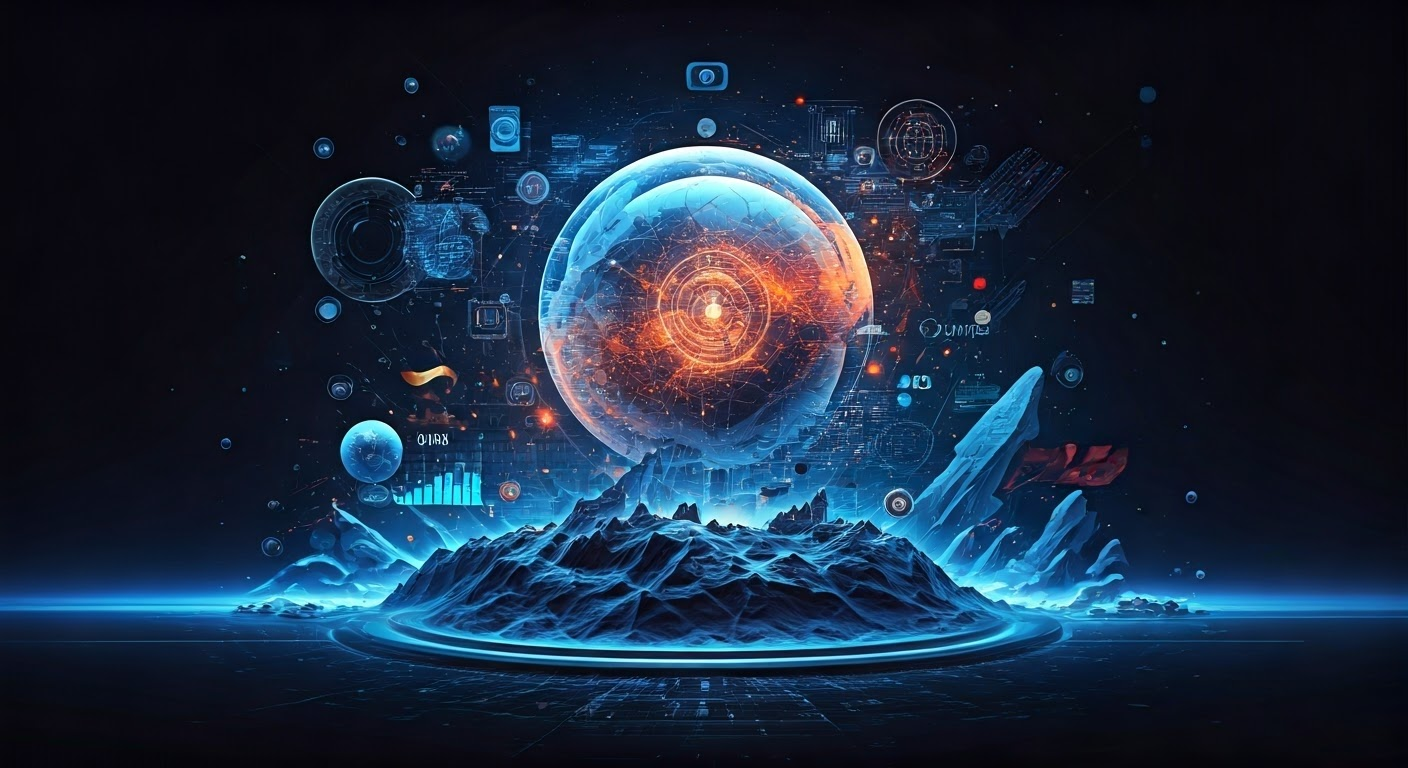
Google Ads has evolved significantly since its inception. From basic keyword targeting to sophisticated audience segmentation, the platform has consistently adopted new technologies to enhance advertising effectiveness. Now, AI is at the forefront of this evolution, ushering in an era of intelligent automation, hyper-personalization, and data-driven decision-making, ensuring that every dollar spent on ads is optimized for better results.
This transformation empowers businesses to reach the right audience, optimize their SEO campaigns in real time, and maximize their return on investment (ROI), ultimately redefining how brands connect with consumers in the digital landscape.
Understanding AI's Role in Google Ads Today
AI is already playing a substantial role in Google Ads, primarily through campaign optimization and automation. Smart bidding strategies, powered by machine learning, analyze vast datasets to optimize bids based on real-time signals, ensuring that your advertisements are shown to users most likely to convert.
Furthermore, AI-driven tools like Google's Performance Max campaigns streamline campaign management by automating bidding, ad creation, and budget allocation across various Google networks, including search, display, YouTube, and more.
This level of automation allows marketers to focus on strategic planning and creative development while the AI handles the intricate tasks of campaign optimization. As AI continues to evolve, its impact on Google Ads will undoubtedly become even more profound.
Predicting the Future: How AI Will Shape Google Ads by 2025
Looking ahead to 2025, AI's influence on Google Ads is poised to reach new heights, with predictive modeling and automation taking center stage. Performance Max campaigns, already leveraging AI's power, will likely become even more sophisticated, utilizing predictive algorithms to anticipate user behavior and optimize campaigns across various platforms, including Gmail.
Imagine AI crafting ad copy variations tailored to different audience segments and specific micro-segments within your target audience, constantly learning and refining messaging for optimal engagement. This level of personalization, driven by AI's capacity to analyze colossal datasets and identify patterns, will be instrumental in maximizing ROI.
As we embrace an increasingly AI-driven future, staying informed and adaptable will be key to harnessing the transformative power of AI in Google Ads.
Key AI Innovations Redefining Google Ads Strategies
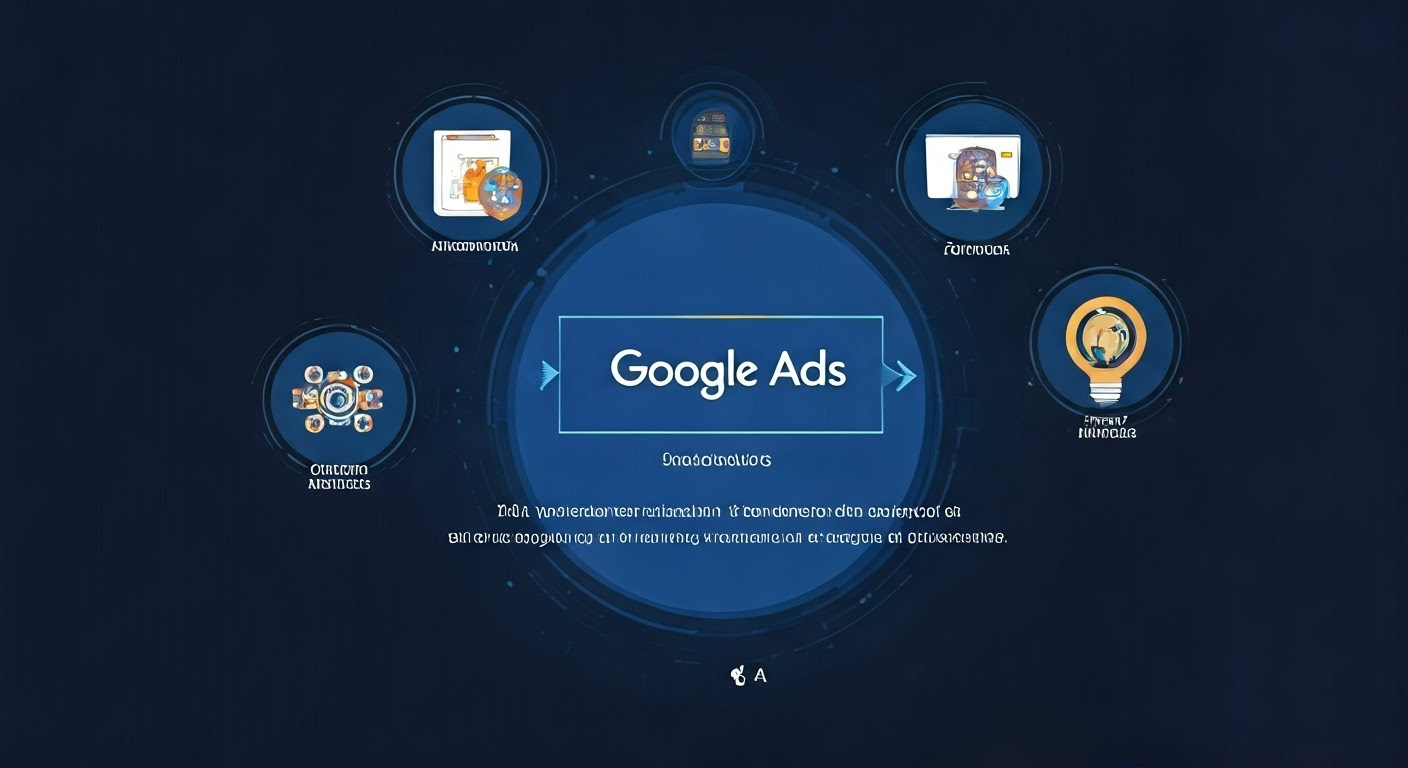
The integration of AI in Google Ads is revolutionizing advertising strategies, paving the way for more efficient and effective campaigns. AI-powered tools are automating tasks, enhancing personalization, and offering deeper insights than ever, empowering businesses to make data-driven decisions and connect with their audience on a whole new level.
Let's explore some of the most impactful AI innovations shaping the future of Google Ads:
Automating Bid Strategies for Maximum ROI
Smart bidding strategies are at the heart of AI-driven campaign optimization in Google Ads. These strategies leverage machine-learning algorithms to automate bidding in real-time, ensuring you're getting the most out of your advertising budget for better performance.
Here's how smart bidding strategies maximize your ROI:
- Real-Time Analysis: Smart bidding continually analyzes auction data, user behavior, and other signals to determine the optimal bid for each auction, ensuring that you're bidding competitively while staying within budget.
- Conversion Optimization: With a focus on driving conversions, smart bidding algorithms prioritize bids that are most likely to result in desired actions, such as purchases, sign-ups, or downloads.
- Simplified Campaign Management: By automating bidding processes, smart bidding frees up your time to focus on more strategic tasks like keyword research, ad copywriting, and landing page optimization.
Enhancing Ad Personalization Through Machine Learning
In the age of information overload, delivering personalized experiences is paramount. Machine learning empowers Google Ads to personalize ads like never before, ensuring that the right audience sees the right message at the right time.
Here's how machine learning fuels ad personalization:
- Audience Insights: Machine learning algorithms analyze vast amounts of data to understand user behavior, interests, and purchase intent, providing valuable insights for precise ad targeting.
- Dynamic Ad Content: AI-driven tools can dynamically generate ad copy variations tailored to individual users based on their search history, demographics, and interests, resulting in more relevant and engaging ad experiences.
- Improved Ad Relevance: Personalized ads resonate better with users, leading to higher click-through rates, increased conversions, and a greater return on ad spend.
AI-Driven Analytics and Predictive Modeling in Google Ads
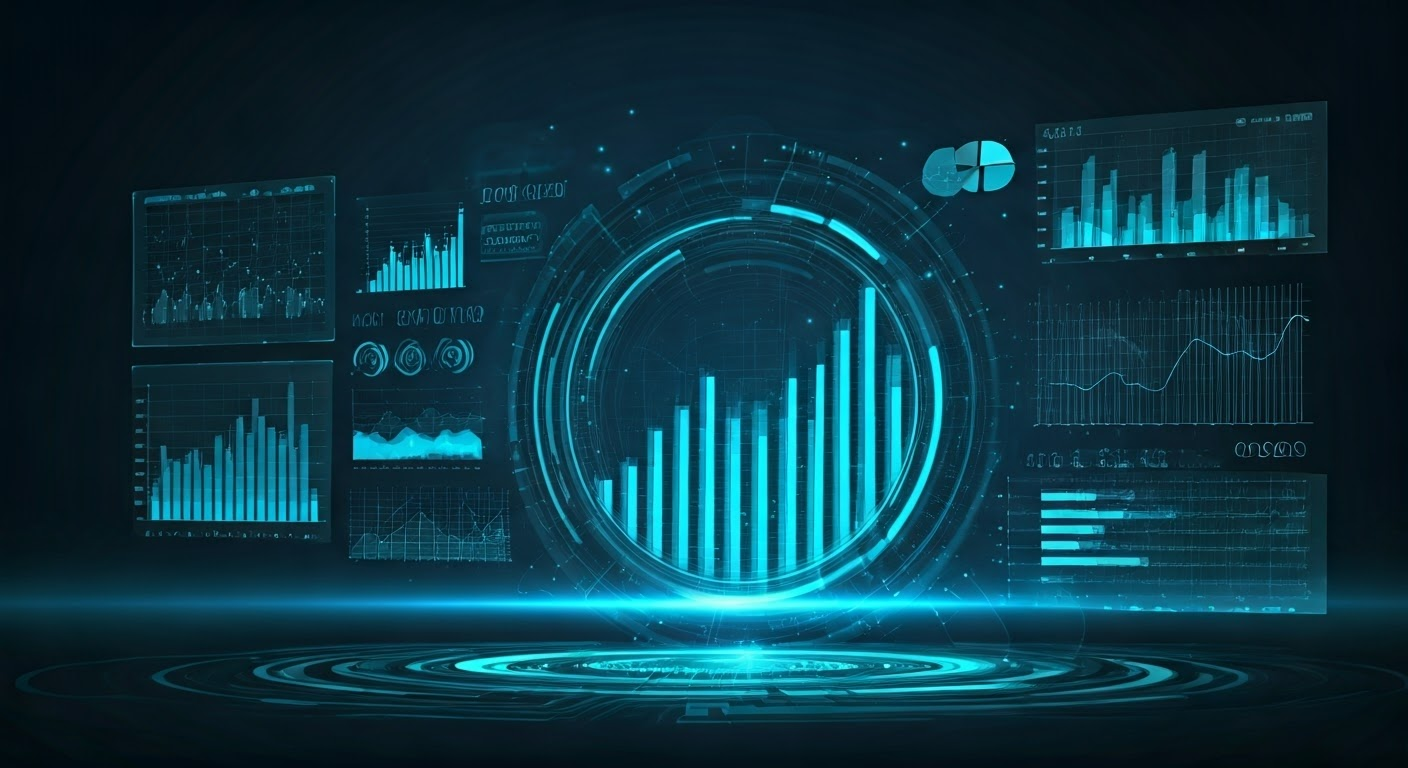
Gone are the days of relying solely on historical data to inform future campaigns. AI-driven analytics in Google Ads services are transforming how marketers gather insights and predict future trends. Through sophisticated algorithms and predictive modeling, Google Ads offers a deeper understanding of campaign performance and user behavior, allowing for more strategic decision-making and better-optimized campaigns.
Let's look at how these AI-powered features are changing the game:
From Data Analysis to Predictive Insights
AI-driven analytics provide marketers with more than just raw data; they transform data into actionable insights, uncovering hidden patterns and trends that drive informed decisions.
Predictive insights, powered by machine learning, take this a step further by forecasting potential outcomes based on historical data and real-time signals. This means you can anticipate campaign performance, adjust strategies proactively, and allocate your budget more effectively.
As AI-driven analytics continue to evolve, marketers can expect even more sophisticated and insightful tools to guide their Google Ads campaigns toward success.
The Impact of AI on Ad Creativity and Dynamic Content
AI isn't just changing the analytical side of Google Ads; it's also revolutionizing the creative process, enabling marketers to develop more engaging and effective ad content. From generating compelling ad copy to dynamically tailoring imagery, AI empowers advertisers to captivate their target audiences with personalized and impactful creative.
Let's explore how AI is shaping the future of ad creativity:
Generating Creative Ad Copy with AI Tools
Writing captivating ad copy that converts is an art and a science. Now, AI tools are emerging to assist marketers in crafting compelling ad copy that resonates with their target audience. These tools use natural language processing (NLP) and machine learning to:
- **Generate multiple ad copy variations: ** Test different messaging and calls-to-action to see what resonates best.
- Personalize ad copy at scale: Tailor language and offers to specific audience segments based on demographics, interests, and online behavior.
- Improve ad relevance: Ensure that your ad copy aligns with user search intent and drives higher click-through rates.
Dynamic Visual Ads: Tailoring Imagery with AI
In a visually driven world, captivating imagery is crucial for grabbing attention and conveying your brand message. AI-powered dynamic visual ads, including video ads, take personalization a step further by tailoring ad imagery to individual users based on their preferences and behaviors.
Imagine a fashion retailer showcasing different product images in their ads based on a user's browsing history, or a travel agency dynamically displaying destination images based on a user's recent searches. This level of personalization, driven by AI's ability to analyze visual data and understand user preferences, enhances engagement and reinforces brand relevance.
Audience Targeting and Segmentation Revolutionized by AI
Imagine a world where you could laser-focus your advertising efforts, reaching only the most receptive audience with pinpoint accuracy. That's the promise of AI-powered audience targeting and segmentation in Google Ads. AI analyzes vast datasets to identify hidden patterns and refine target audiences, enabling marketers to reach the right individuals with the most relevant messaging.
Here's a closer look at how AI is changing the game:
Advanced Audience Insights Through AI Algorithms
AI unlocks a deeper understanding of your target audience, going beyond basic demographics and delving into interests, online behavior, and purchase intent. AI algorithms sift through massive datasets to identify nuanced patterns and connections, revealing valuable insights that inform your marketing strategy.
This level of granular understanding allows you to:
- Create highly targeted ad campaigns: Focusing on specific customer segments likely to convert, maximizing your ROI.
- Tailor ad messaging for optimal resonance: Aligning ad copy and creative with the unique interests and preferences of each audience segment.
- Continuously improve your targeting: As AI algorithms learn and adapt, they refine your target audiences, ensuring that your campaigns remain effective.
Hyper-Personalization: Reaching the Right User at the Right Time
Hyper-personalization is the ultimate goal of AI in marketing, delivering tailored experiences to each user at every touchpoint. In the context of Google Ads, hyper-personalization means showing the right user the right ad at the right time, based on their unique needs and behaviors.
AI enables this level of personalization by:
- Analyzing individual user data: Understanding browsing history, purchase behavior, and even real-time online activity to deliver the most relevant ads.
- Dynamically adjusting ad content: Tailoring messaging, imagery, and offers to resonate with each user's specific interests.
- Creating a seamless ad experience: Ensuring that ads feel less like interruptions and more like helpful recommendations, enhancing engagement and driving conversions.
Preparing for AI's Advancements in Google Ads
As AI becomes increasingly integrated into Google Ads, marketers need to adapt and acquire new skills to leverage these advancements effectively. Adapting to this AI-driven future requires a combination of technical understanding and strategic thinking, enabling marketers to harness AI's power while maintaining a human-centric approach to advertising.
Let's explore the key steps you can take to prepare for AI's advancements:
Skills Digital Marketers Need to Thrive in an AI-Dominated Landscape
Thriving in an AI-dominated landscape requires digital marketers to develop a new skill set.
- Data Analysis and Interpretation: The ability to analyze campaign data, extract insights, and make data-driven decisions will be crucial. Marketers should be comfortable with metrics, analytics platforms, and AI-powered reporting tools.
- Understanding AI Concepts: While you don't need to be a data scientist, a basic understanding of AI concepts like machine learning, predictive modeling, and natural language processing will be highly beneficial in navigating the evolving Google Ads landscape.
- Strategic Campaign Planning and Optimization: AI will handle many tasks, but strategic planning remains paramount. Marketers need to define clear campaign goals, identify relevant target audiences, and develop creative strategies that align with overall business objectives.
Ethical Considerations and Privacy in AI-Enhanced Advertising
As AI personalizes advertising, ethical considerations and privacy concerns become increasingly important.
- Transparency and Consent: Marketers must be transparent with users about how their data is used for ad personalization and ensure that proper consent mechanisms are in place.
- Data Security and Privacy: Protecting user data is paramount. Marketers must adhere to data privacy regulations, implement robust security measures, and prioritize user privacy in all aspects of AI-enhanced advertising.
- Avoiding Bias and Discrimination: AI algorithms can inherit biases from the data they are trained on, leading to discriminatory ad targeting. Marketers must be vigilant in identifying and mitigating biases to ensure fair and equitable ad experiences for all users
KeywordSearch: SuperCharge Your Ad Audiences with AI
KeywordSearch has an AI Audience builder that helps you create the best ad audiences for YouTube & Google ads in seconds. In a just a few clicks, our AI algorithm analyzes your business, audience data, uncovers hidden patterns, and identifies the most relevant and high-performing audiences for your Google & YouTube Ad campaigns.
You can also use KeywordSearch to Discover the Best Keywords to rank your YouTube Videos, Websites with SEO & Even Discover Keywords for Google & YouTube Ads.
If you’re looking to SuperCharge Your Ad Audiences with AI - Sign up for KeywordSearch.com for a 5 Day Free Trial Today!
.
Conclusion
In the ever-evolving landscape of Google Ads, AI innovations are reshaping strategies and enhancing outcomes. By embracing machine learning, bid strategies are automated for maximum ROI, while ad personalization reaches new heights. AI-driven analytics offer predictive insights, allowing real-time adjustments for optimized campaign performance. Creativity flourishes with AI-generated ad copy and dynamic visuals tailored to engage audiences effectively. Audience targeting sees a revolution with advanced insights and hyper-personalization. To thrive in this AI-dominated realm, digital marketers must hone skills and navigate ethical considerations. The future of Google Ads is set to be defined by AI, offering immense potential for enhanced advertising experiences and outcomes by 2025.
Frequently Asked Questions
How Will AI Change Google Ads by 2025?
AI is predicted to bring significant changes to Google Ads by 2025, including greater automation, hyper-personalized ad experiences, and predictive insights for campaign optimization, transforming how brands connect with their target audiences through brand inclusions.
Can AI in Google Ads Improve Campaign ROI?
Absolutely. AI-powered strategies in Google Ads can improve campaign ROI by automating bidding, refining audience targeting, personalizing ad experiences, and providing data-driven insights for ongoing optimization.
